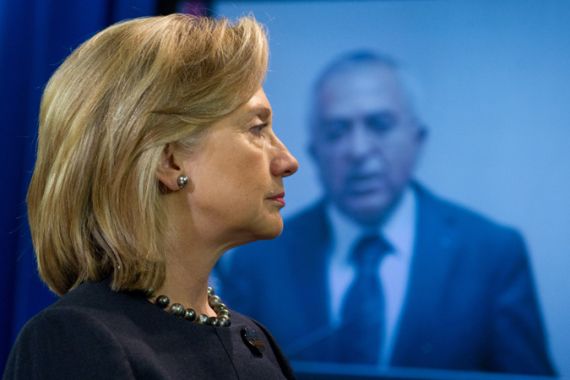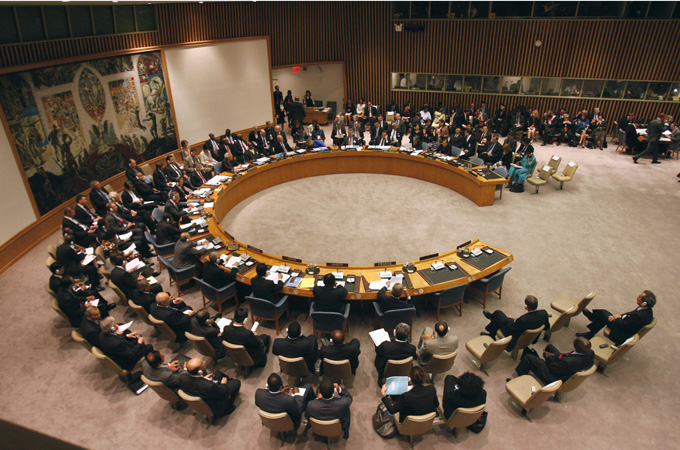US rebukes Israel on settlements
Hillary Clinton joins international leaders in denouncing Israel’s plans to build new settler homes in East Jerusalem.

 |
|
The Palestinians plan to try to bring the issue of Israeli settlements before the UN Security Council [REUTERS] |
Hillary Clinton, the US secretary of state, has joined a chorus of international leaders, in rebuking Israel for plans to build new illegal settlements in the West Bank.
“This announcement was counterproductive to our efforts to resume negotiations between the parties,” Clinton told reporters during a press conference on Wednesday at the state department in Washington DC.
On Monday, Israel said it would move ahead with the construction of 1,300 apartments in East Jerusalem – territory it regards as part of Israel but which Palestinians claim for the capital of their future state. Another 800 housing units are planned for the Ariel settlement in the north West Bank.
But Clinton, who was joined via video link by Palestinian prime minister Salam Fayyad, also said the US and Palestinians “still believe that a positive outcome is both possible and necessary”.
Clinton also announced that the US would provide the Palestinian government with $150 million to pay down debt and continue providing its people with basic services. The Palestinian Authority, which is not recognized as the rightful government by its rivals Hamas in the Gaza Strip, depends on foreign assistance to administer the territories.
Plea for UN meeting
Mahmoud Abbas, the president of the Palestinian Authority, has called for an impromptu meeting of the United Nations Security Council to put a halt to the Israeli government’s continued settlement construction.
Nabil Abu Rdainah, a spokesman for Abbas, told reporters on Wednesday that “something must be done at the international level” to put a stop to the expansion of settlements beyond the “green line” established between Israel and the Palestinian territories after the 1967 war.
Riyad Mansour, the Palestinian delegate to the United Nations, said he would make a request for a special Security Council meeting through Arab countries that have full member status in the United Nations.
Israel’s settlement construction has long been viewed by the international communtiy as illegitimate and troublesome.
The government of prime minister Binyamin Netanyahu has also become increasingly pugnacious on the issue, after an initial period of deference to the Obama administration’s demand for a settlement “freeze”. On Tuesday, in response to international criticism of the new East Jerusalem construction, Netanyahu’s office said “Israel sees no link between the peace process and its development plans in Jerusalem”.
But on Wednesday, Netanyahu said he would use an upcoming meeting with Clinton in New York City to smooth over the dispute.
“We have broad understandings with the United States on this issue and many others that surmount the disagreements over other matters,” he said.
In 1979, the Security Council passed Resolution 446, calling on Israel to halt settlement construction and stating that the settlements “have no legal validity and constitute a serious obstruction to achieving a comprehensive, just and lasting peace in the Middle East”. Israel unilaterally withdrew from the Gaza Strip in 2005, but no action has been taken to halt settlement construction in the West Bank.
In his much-anticipated speech to the Muslim world from Cairo in 2009, US president Barack Obama declared that “it is time for these settlements to stop”. At first, the United States won an agreement from Israel to a moratorium on settlement construction – the so-called “freeze”.
But Israel violated the freeze multiple times and claimed it was never meant to include East Jerusalem.
Around 500,000 Israeli Jews live on settlements in Palestinian land, and the Palestinian leadership has said that final peace negotiations are impossible unless settlements are halted. Direct negotiations between the two sides resumed in Washington DC in September but broke down after the settlement moratorium ended later that month.